Ten good reasons to invest in Wallis & Futuna
As the French Territory located furthest from France, the archipelago of Wallis & Futuna has an economy and tax system which differ from those of other overseas collectivities.
Local economic players enjoy the benefit of support and funding from the Wallis & Futuna Chamber of Commerce, Industry, Trades and Agriculture (CCIMA) which, in terms of responsibilities and operation, is uniquely designed to take into account the Territory’s special status.
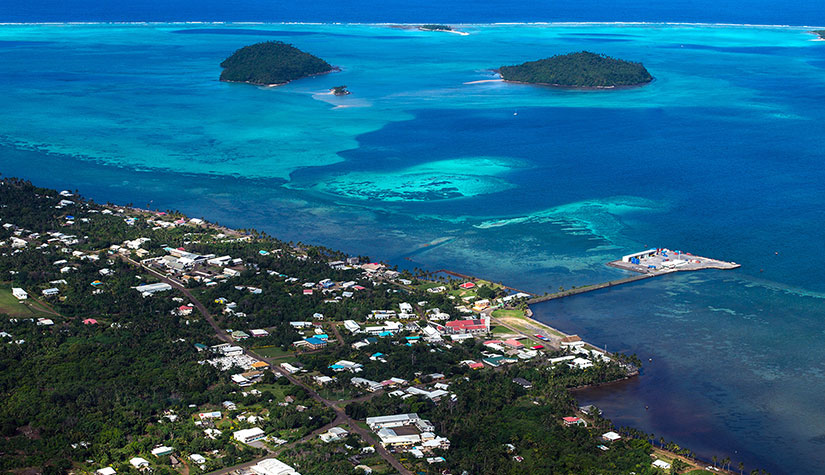
Here are a few good reasons to invest in Wallis & Futuna:
1 - Human assets & resources
Thanks to the French education system, educational and training standards in Wallis & Futuna are good and people all speak fluent French, in a mainly English-speaking regional environment. Wallisians and Futunans are friendly and welcoming to foreigners, and value the concepts of exchange and sharing. With nearly 40% of the population aged under 20 (2013 census), there are plenty of talented young people. The people of Wallis & Futuna are courteous, friendly and steady; crime is unknown in the islands.
2 - Attractive tax system
The Territorial Assembly has sole responsibility for setting taxes, the tax base and taxation rates, in accordance with the provisions of article 74 of the Constitution, Statute No. 61-814 of 29 July 1961 and Decree No. 57-811 of 22 July 1957.
In this regard, the Territory of Wallis & Futuna falls under a specific tax regime, the main feature of which is that there is no income tax, corporate tax, capital gains tax, wealth tax or value-added tax.
The tax system is therefore based on indirect taxation. .Moreover, the Wallisians and Futunans are not required to pay the Generalized Social Contribution (CSG) nor the Contribution for the Reimbursement of the Social Debt (CRDS).
Given these advantages, a number of outside companies and shipowners are registered in Wallis & Futuna.
3 - A currency pegged to the euro
The currency used in Wallis and Futuna is the Pacific Franc Franc (XPF or F CFP), also used in New Caledonia and French Polynesia, and France’s second official currency.
The Pacific Franc is pegged to the euro at a fixed exchange rate, so entails no FX Exposure on eurozone markets. The Institut d’Emission d’Outre-Mer (IEOM - central bank for French overseas territories) has sole authority to issue the currency.
1,000 XPF is equal to 8.38 euros; 1 euro is equal to around 119.33 XPF.
4 - A French Pacific territory with full internet access
As a French Overseas Collectivity, Wallis & Futuna enjoys good governance and political stability, ensuring a favourable business climate, and has the advantage of French public services.
The Tui Samoa submarine cable delivers ultra-fast fibre optic internet access, ideal for offshore service businesses.
Key utilities (power and drinking water) are supplied under concession by a semi-public company. Gradual implementation of standardised power supply tariffs means that, by 2020, water and electricity costs will be divided by 5, on a par with costs in France.
Moreover, everyone in Wallis & Futuna has access to free education and healthcare.
5 - High geographic and natural resource potential
The geographical position of the islands of Wallis & Futuna gives them an advantage in terms of time difference, namely a day ahead of Europe (11 hours ahead of Paris).
Its relative proximity to Fiji, New Caledonia, Australia and New Zealand, , puts Wallis & Futuna right at the centre of a vast tourism marketplace, an area within which several hundred thousand people travel every year. Wallis-Hihifo international airport has the necessary infrastructure and amenities to handle frequent passenger flows.
The local authorities have made tourism a key strategic priority in the development of Wallis & Futuna over the coming years. The tourism industry is set to achieve strong growth, generating economic spin-offs guaranteed to benefit other sectors.
Renewable energy sources (solar, wind and water power) also represent a huge potential which is currently underused.
6 - An aid scheme designed as an incentive to project sponsors and businesses
The Territory of Wallis & Futuna has introduced an aid scheme to promote the setting up or development of local businesses: the Territorial Investment Code (CTI). The CTI can provide funding representing up to 40% of investment costs, with maximum aid totalling 4 million XPF.
The CTI scheme provides for a full refund of employer contributions over a period of 2 years; a 50% reduction on import levies for project-related materials and equipment, and liquidity help covering 30% of interest costs on project-related loans.
More information available on the CCIMA website.
7 - Aid to reduce freight costs
Freight cost aid of up to 50% is granted to Wallis & Futuna businesses to offset extra costs linked to the air or sea transport of raw materials and intermediate products imported from the European Union for processing purposes.
Transport of such incoming products between the islands of Wallis and Futuna is also offset, as is the transport of goods produced in the islands for shipment to France.
8 - French Overseas tax relief scheme
The Overseas Programme Law of 21 July 2003, or Girardin Law, is designed to promote the economic development of France’s Overseas Departments & Territories (DOM-TOM). Application of the law in Wallis & Futuna has been extended until 2025.
Under this scheme, taxpaying residents of France can reduce their taxes by investing in materials and equipment to be used in overseas industry or crafts projects, and the purchase or construction of housing developments.
Up to 35.87% of total investment can be financed under the tax relief scheme.
9 - A specific pension plan
Wallis & Futuna has its own local pension scheme, differing from other pension plans insofar as local employees are not subject to payment of the social security contributions applicable in France and in other Overseas Collectivities and Countries.
10 - Excellent and authentic living environment
The Wallis & Futuna archipelago is blessed with a rich cultural and natural heritage: : an unspoiled lagoon, dream beaches and islets, vibrant cultural and religious traditions... . The islands enjoy a tropical climate with pleasantly warm temperatures hovering between 25° and 30° throughout the year.
Wallis & Futuna is a biodiversity haven boasting a wide variety of tropical plant and wildlife species. The local people are friendly and welcoming and the crime is wellnigh unknown.
Wallis & Futuna - the economy
48.2% of the population is aged between 20 and 59, i.e. around 5,500 people, including 4,000 persons in current employment. The employment rate is stable: 2,065 employees are registered on the books of the Wallis & Futuna social security office, including 60.6% public sector employees with, in addition, 381 government employees paying contributions to French social security offices. Wallis & Futuna has an essentially administered economy.
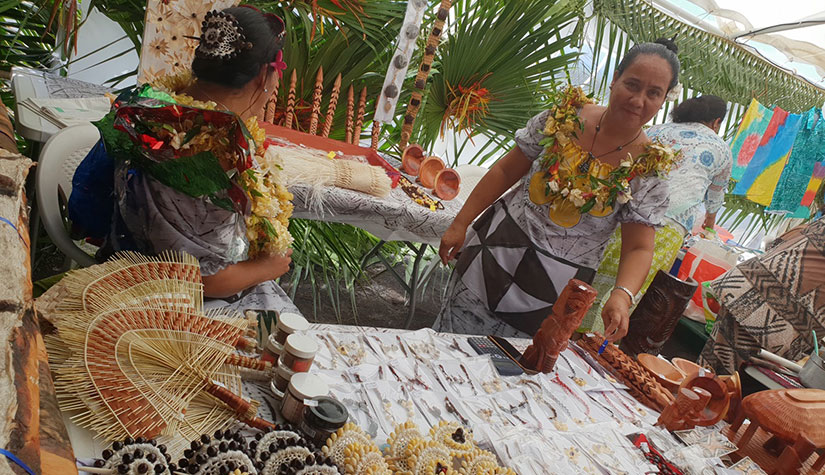
Estimated GDP in 2005 totalled 150 million euros, i.e. €10,100 per year per inhabitant.
The monthly minimum salary (SMIG) is 90,000 XPF (750 euros).
Wallis & Futuna falls under a specific tax regime, the main feature of which is that there is no income tax, corporate tax or capital gains tax. Territorial revenue is primarily indirect tax-linked (customs duties) and totals 2.5 billion XPF per year (around 208 million euros).
Pursuit of a professional activity is subject to payment of a licence, set in accordance with the business sector concerned.
The resource industry sector (agriculture, stockbreeding, forestry, and fishing) comprises 19% of businesses; arts & crafts production 12%; power and water production 0.5%; construction 11%; trade 31%, and other market services 28%.
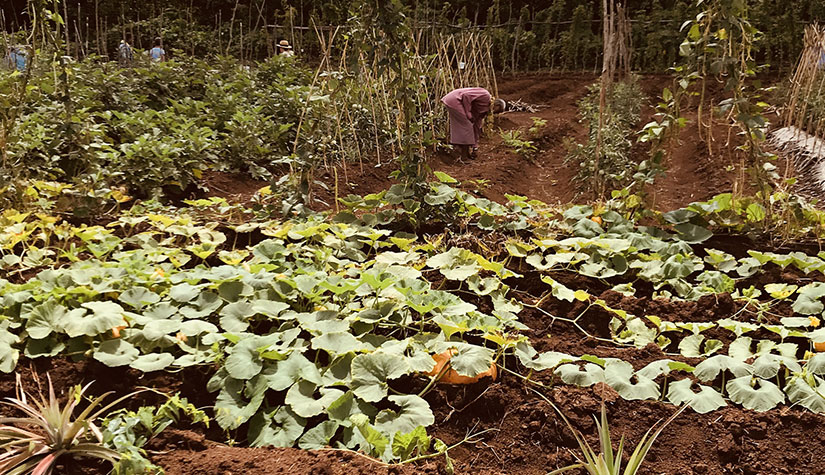
There are approximately 650 licensees in the Territory, 2/3 in Wallis and 1/3 in Futuna.
The Territory’s economic data is compiled each year in a report issued by the Institut d’Emission d’Outre-Mer (IEOM - central bank for French overseas territories).
Growth sectors
The Territorial Assembly has established priority sectors for Wallis & Futuna up to 2030, and is committed to ensuring strong backing for such sectors.
Priorities are:
- Developing the resource sector
- Boosting local business growth
- Leveraging the Territory’s digital environment to encourage new investors
- Expanding tourism
- Promoting marine policy
- Safeguarding biodiversity and reducing energy dependence.
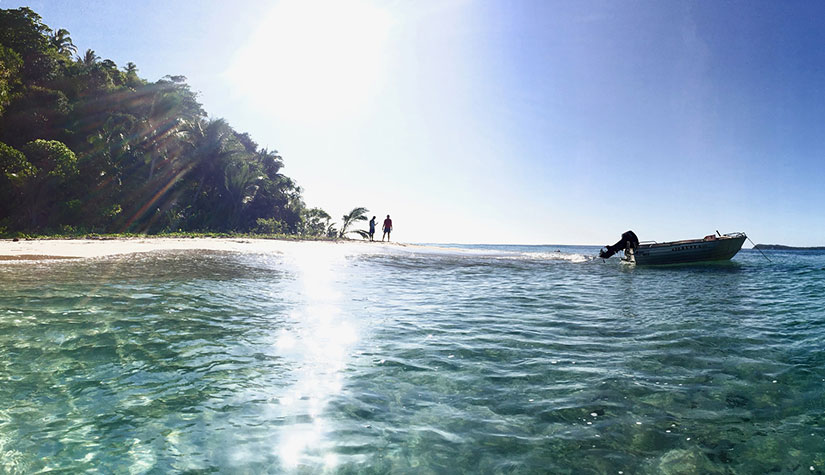
CCIMA
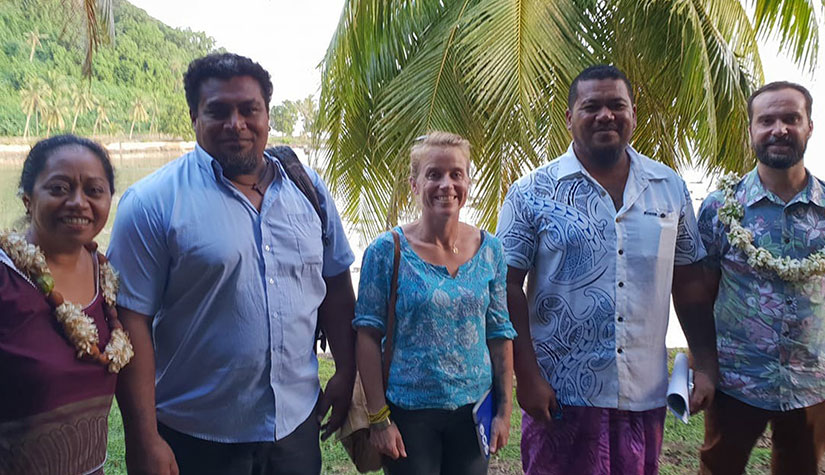
As regards the public authorities, the Wallis & Futuna Chamber of Commerce, Industry, Trades and Agriculture (CCIMA) acts as the representative body for the Territory’s various sectors of activity.
It is tasked with defending the general interests of licenced professionals, providing aid to business leaders and providing advice and training. The CCIMA combines the responsibilities assigned to three chambers (CCI, CMA, and Chamber of Agriculture) in other French departments.
The public authorities consult the CCIMA on issues relating to business activities in all three sectors.
Do you have an economic project in Wallis & Futuna? A query concerning our business enterprises? Do you need funding support to set up a business activity?
The CCIMA is here to provide support and advice, at our offices in Wallis and Futuna or This email address is being protected from spambots. You need JavaScript enabled to view it..
Setting up a business
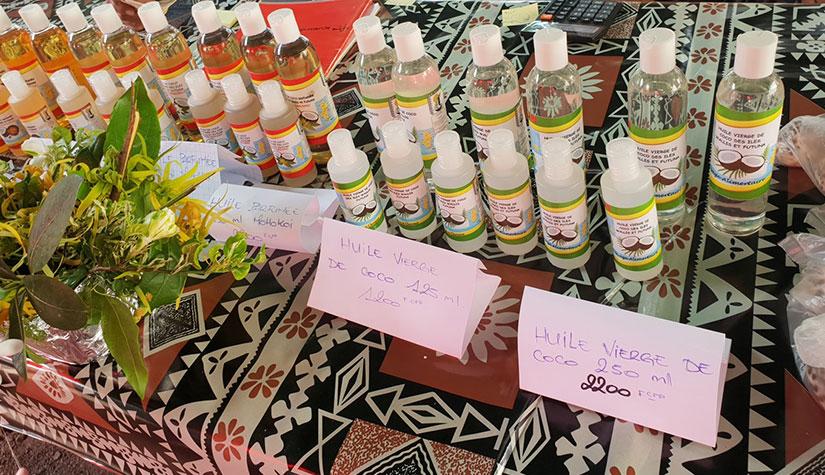
Setting up a business in Wallis or in Futuna requires the following steps: publication of a notice in the Official Gazette; an entry in the Trade and Companies Register, which will issue the Kbis (Company Registration Certificate); registration at the License Office; and payment of fees to the Public Treasury.
The CCIMA is responsible for providing support and help to people who set up or take over businesses: it is establishing a Business Registration Centre to simplify and centralise procedures.
Employer and employee social security contributions
Payment of employer and employee social security contributions is made to the Social Security Office (CPSWF).
In 2019, pension plan-related employer contributions stands at 13.4%, with employee pension plan contribution at 6.70%; employer family benefit-related contributions stands at 6%.
In 2020, employer contributions will be stabilised at 20% (14% for pension plans, 6% for family benefits), employee contributions will total 6% (pension plans).



